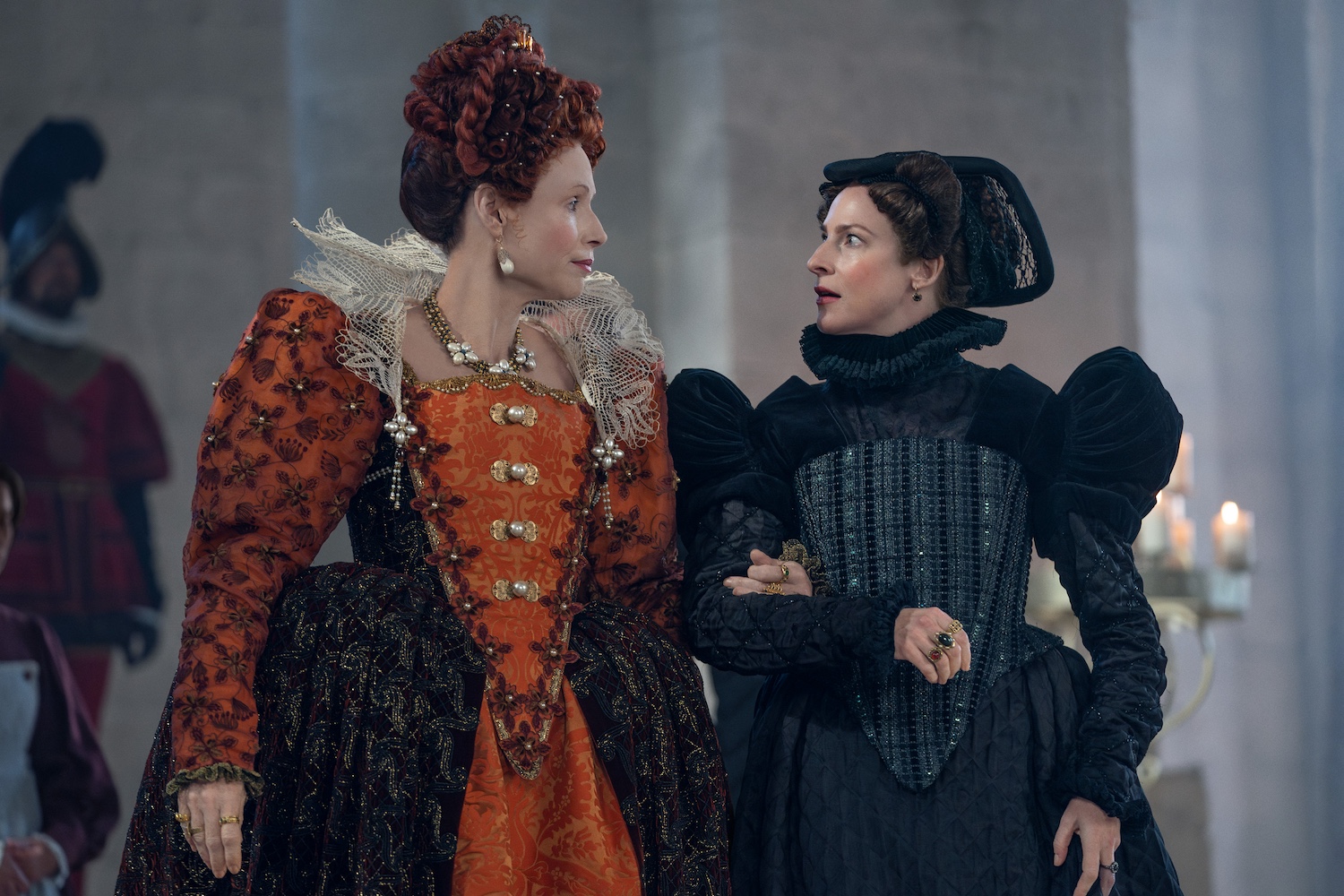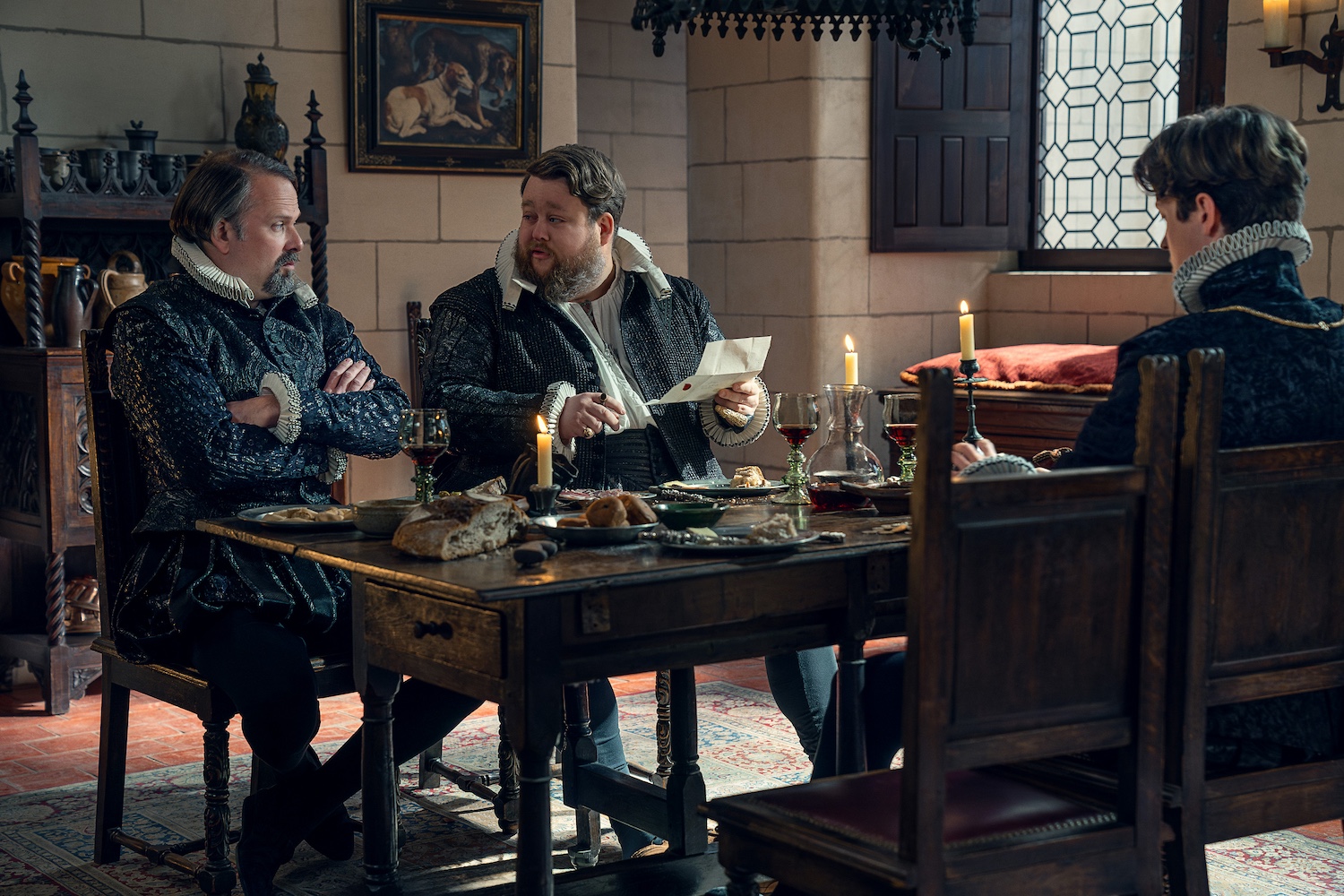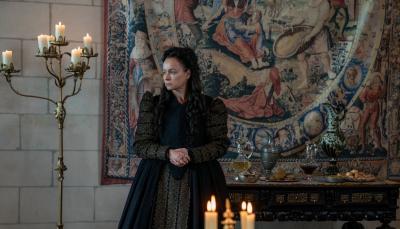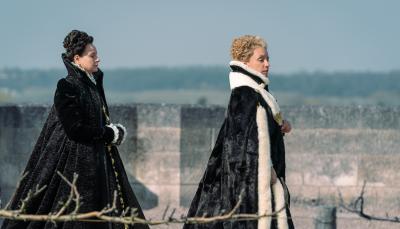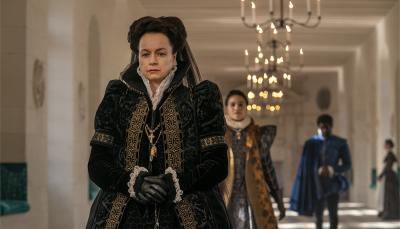Tragedy strikes in 'The Serpent Queen's "Death of a Prince"
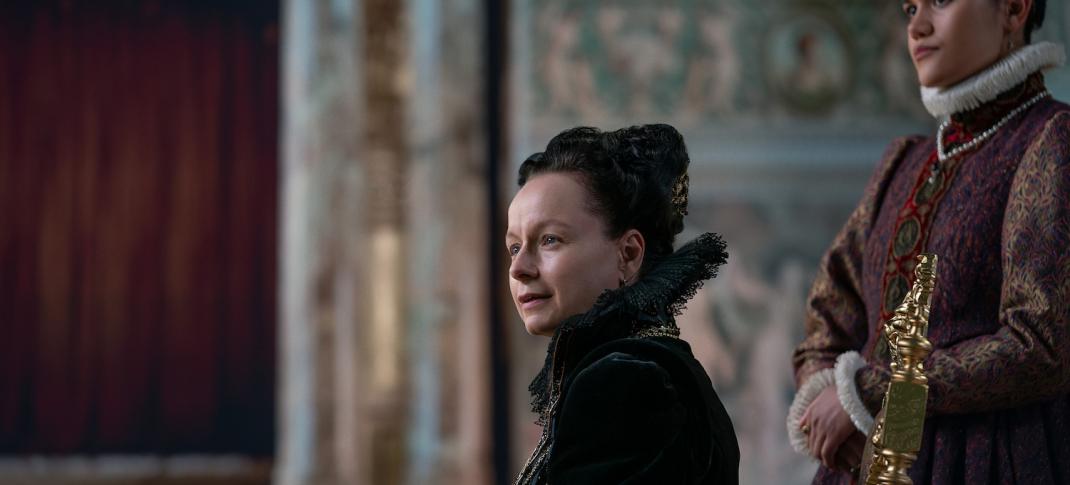
Catherine (Samantha Morton) and Rahima (Emma McDonald).
© STARZ
This week’s The Serpent Queen begins with Catherine leaving her family and courtiers for a business trip to Italy. On her long journey, Catherine has time to reflect on the situation she left behind in France. Her dearly loved but annoying children and the Guise and Bourbon families are untrustworthy, with the country on the brink of civil war. Things are not quite going to plan, with the survival of lay preacher Edith hailed as a miracle, leading to destructive raids on churches where statues are smashed and clerics attacked. Having arrived in Florence to raise money for her new palace, Catherine is unhappy about returning to her hometown. She tells Rahima It’s here that she lost everything, and she wants to return to France.
Catherine: When Edith rose from the dead everything I had tried to subvert threatened to come to pass. Ironic, isn't it, that a miracle would prove the greatest obstacle to peace.
For once, Catherine and the Guise family are on the same wavelength. Edith has been promoted to Protestant sainthood, and the only advantage for the Guises is that Catherine is out of the country. But her children ... they’re up to their usual tricks.
Anjou and Hercule, out for a ride in the forest, come across a group of woodcutters who are not friendly. They remind Anjou that although he’s a prince, he’s not their prince and throw mud at his face. Offended, Anjou and Hercule return home, where Anjou complains to his brother, the King.
In a rare moment of clarity, Anjou admits he understands the woodcutters’ lack of respect. He and his siblings are untalented, expensive ornaments without purpose or skills, but it’s Charles’s responsibility to act like the King he is and take revenge. Charles refuses and then calls him out for not regarding etiquette as Anjou turns away to leave. No one turns their back on the King or leaves his presence without permission. Anjou grudgingly acquiesces, and it’s a relief to see Charles man up for once. Margot suggests that they send a letter to their mother.
So how is the Bourbon diplomacy working out? Elizabeth I (Minnie Driver, in a pleasingly wacko interpretation) visits Mary Queen of Scots (Antonia Clarke), for whom things aren’t going at all well. Fooled by Catherine to return to Scotland and claim the throne, Mary has been imprisoned for five years by her cousin Elizabeth who makes vague offers of improved living conditions. Elizabeth admits to Lord Throckmorton (Alex Price) that she intends to execute Mary soon before moving to the next item, the visit from Jeanne d’Albret of Navarre (Rosalie Craig), Antoine de Bourbon’s wife.
Jeanne is in England to further the trade deal negotiations; as usual, she claims Throckmorton is her spiritual guide, which no one ever believes, interpreting it as a euphemism for sex. Even in England, Elizabeth has heard about Anjou getting mud on his face and about the miracle of Edith’s survival. She changes the subject to invite Jeanne to go shopping with her in London.
Back in France, the Bourbon Bros are delighted to hear of Jeanne’s progress. Just to make sure everything is still under control, Antoine resumes his affair with Antoinette de Guise (if nothing else, it will enrage her sons, the Guise Bros), and Louis leaves to conduct negotiations in England (against Catherine’s orders).
Anjou receives religious instruction from Cardinal Charles de Guise, who drums into him the seriousness of the religious conflict. Guise impresses upon him that he, as a high-ranking church official, is in charge, not even the King, and certainly not the King’s brothers. What would happen, he asks Anjou, if King Charles decided to declare himself the head of the church in France, as Henry VIII did in England?
Meanwhile, Catherine receives an unexpected visitor in Florence: her half-brother Alessandro de Medici, Duke of Florence (Ashley Thomas). She finds they have a lot in common (particularly after Rahima has checked out his credentials). Although the Pope has proclaimed there are no heretics in Italy, Alessandro, like his sister, believes in a secular society and holds humanist/heretical views. Isolated and without family for most of her life, Catherine warms to her brother and his offer of friendship.
He accompanies her to a meeting with the House of Strozzi, where she pitches her concept of a grand palace in Paris. She wants to borrow money and the services of Italian artists and is prepared to repay a loan with money raised by the English trade deal. She reminds us that the Medicis were bankers, and she knows the tricks. She recommends Alessandro as the project manager. It’s a successful negotiation all around.
Catherine receives the letter from her daughter Margot, asking her to return. She’s annoyed when Alessandro turns up unannounced but becomes interested when he tells her he’s repurchased and restored the Medici family house and wants her to visit it. Of course, she does, and the return to France is delayed.
Anjou is rescued by, of all people, Diane de Poitiers, who has arrived to look after the royal children. She takes him out of the chapel and advises him to forget all about those nasty peasants. His enemies will shame him by making public his cross-dressing. He’s liked women’s clothing ever since he was a child when Diane used to encourage him to dress up, but now he’s a public figure close to the throne and should be discreet. Anjou’s brothers and sisters all respond positively to Diane’s charm and warmth, not realizing she almost certainly has an agenda of her own.
Montmorency visits Edith and her followers in the forest and finds she’s taking her sainthood rather too seriously. When he asks about food and shelter, and suggests she let her followers return home, she merely says God will provide. So far, Montmorency tells her, she has had good luck, not divine intervention. She no longer cares about Francois de Guise’s guilt, believing it inferior to whatever God has planned. Edith refuses to help, repeating the same logic when recent convert Aabis asks for medical treatment for her companion Matisse (Mikaël Mittelstadt), who is badly injured.
Angelica, once Aabis's friend and Catherine’s servant, before she decamped to Diane’s household, finds magician Ruggieri in the forest and asks for advice on being hired again by Catherine. He tells her that it will be impossible. Anyone who betrays Catherine doesn’t get a second chance. Angelica is also concerned that Aabis is still missing.
Montmorency proposes to King Charles that he arrest Francois de Guise (something else Catherine forbade). Francois is strolling with Margot in the maze in the garden, and there is definitely something flirtatious going on between them, even though she wants to talk about the afterlife and sin. As he tells her she is “singular,” Montmorency spoils the romance by arriving with two guards to arrest him. At first, he resists and then surrenders.
Anjou, who never learns, is out hunting in the forest with his younger brother Hercule and some attendants. They meet up with a group of Edith’s followers. Claiming they are sent by God, they refuse to bow, and their leader brings up the issue of Anjou’s sexuality. He offers to lead Anjou in his journey to salvation. To everyone’s surprise, Anjou dismounts and allows himself to be led into a nearby pond. There, he attacks, pushing the man underwater in a parody of baptism. One of his attendants, Lemur (Henry Felix), draws his sword, while one of the group throws a stone at Hercule. Anjou is horrified to see his brother fall unconscious to the ground and shouts for help.
Catherine will come home to find her orders flagrantly disobeyed and her favorite son, Hercule, near death. She may be the wicked serpent queen, but her love for her children (some of them, at any rate) is genuine.
The Serpent Queen Season 2 will release a new episode weekly on Fridays through August 30, 2024.

